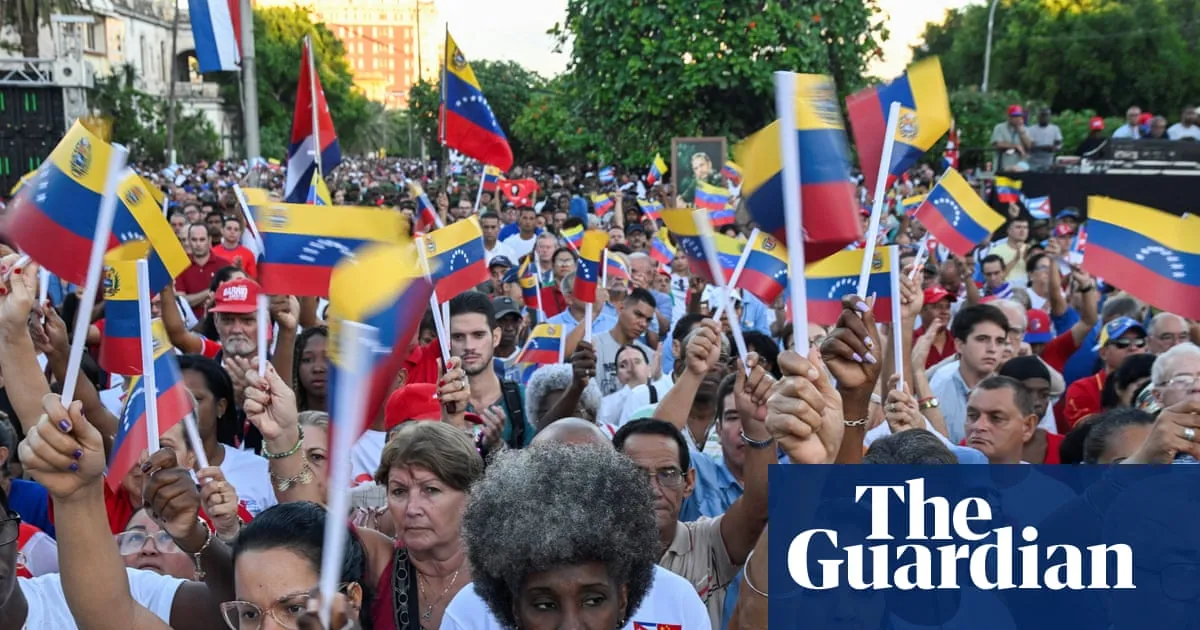
The United States has recently conducted a military operation that resulted in the seizure of survivors from a suspected drug-carrying vessel in the Caribbean. This marks the first military strike since President Donald Trump initiated a series of deadly attacks aimed at drug trafficking in the region last month, according to officials in Washington.
President Trump confirmed the operation during a press conference while hosting the Ukrainian president at the White House. He stated that the targeted vessel was a narco-submarine, specifically designed for transporting massive quantities of drugs. “We attacked a submarine, and that was a drug-carrying submarine built specifically for the transportation of massive amounts of drugs,” Trump said, highlighting the ongoing battle against drug cartels.
The use of narco-subs dates back to the 1980s when Colombian drug lords first employed these custom-built semi-submersibles to smuggle cocaine through the Caribbean towards Mexico and the United States. In recent years, crime bosses have escalated their ambitions, commissioning advanced fiberglass creations capable of transporting substantial cocaine hauls over thousands of miles.
The attack on Thursday is reported to be at least the sixth military strike in the waters off Venezuela since early September. It is significant as it resulted in the capture of survivors by the US military. However, the fate of these individuals remains uncertain, with officials stating they are currently being held on a US Navy vessel. The officials who confirmed the strike did so under the condition of anonymity, as the Trump administration has yet to publicly acknowledge this military action.
This latest military action raises the total death toll from US strikes against vessels in the Caribbean to at least 28. President Trump has justified these strikes by asserting that the United States is engaged in an “armed conflict” with drug cartels, invoking the same legal authority used by the Bush administration during the “war on terror” following the September 11 attacks in 2001. This includes the ability to capture and detain combatants and the use of lethal force against cartel leadership.
Legal scholars have raised concerns regarding the implications of Trump’s military actions, stating that the use of overwhelming force against the cartels, alongside covert operations authorized within Venezuela, could stretch the limits of international law. The survivors of this latest strike face an unclear future, with questions arising about whether they are now classified as prisoners of war or defendants in a criminal case.
The White House has not commented on the recent strike, but Juanita Goebertus Estrada, the Americas director at Human Rights Watch, criticized the attacks as violations of international human rights law and termed them extrajudicial executions. She emphasized that the US is not in an armed conflict with Venezuela, Trinidad and Tobago, or with alleged criminal groups, and that law enforcement must prioritize minimizing harm and preserving human life.
The strikes occur amid a significant US military buildup in the Caribbean, which includes guided missile destroyers, F-35 fighter jets, a nuclear submarine, and approximately 6,500 troops. This military escalation is part of Trump’s strategy to intensify the standoff with the Venezuelan government.
The military operations have stirred unease among both Democrats and Republicans on Capitol Hill. Some Republican lawmakers have expressed concerns about the lack of sufficient information regarding the strikes. A recent classified briefing for senators on the Senate Armed Services Committee did not include representatives from intelligence agencies or military commands from South and Central America. Nevertheless, most Senate Republicans supported the administration last week during a vote on a war powers resolution that would have required Congressional approval for further military strikes.
This ongoing situation underscores the complexities surrounding US military involvement in the Caribbean and raises critical questions about legality, human rights, and international law.